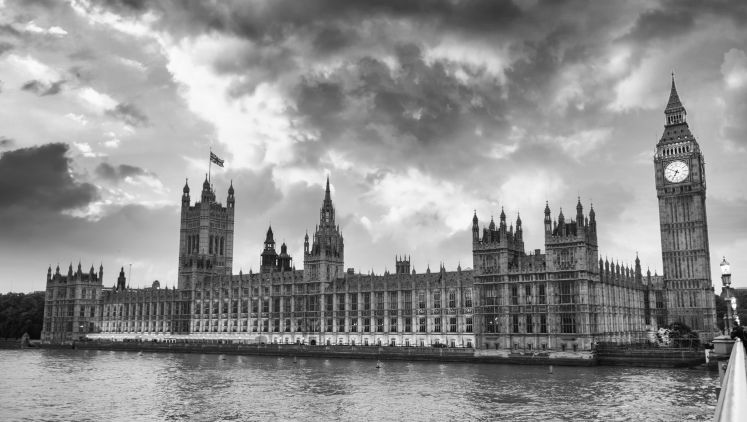Campaign financing and election spending was last regulated in 2000. Yet both major parties continue to rely on a handful of large donors granting them privileged access to power, and undermining public trust in political institutions. Jonathan Hopkin and Stuart Wilks-Heeg argue the next government needs to reform the current regulation on party financing, even if it will be against its short-term interest.
The campaign for the 2024 general election is near its end. The news cycle has been dominated by leaders’ debates, opinion polls and scrutiny, mostly quite superficial, of the major parties’ manifestoes. But relatively little attention has been dedicated to how political campaigns are funded. Parties and candidates do enjoy some very limited public support for election campaigns, such as some free postage, access to public assembly rooms and a small number of TV election broadcasts. Opposition parties in the House of Commons receive public subsidies – the so-called Short Money – worth around £10 million annually in total, to support their work in Parliament. But maintaining constituency offices, paying party employees, and frequent election campaigns cost considerably more than this, and party member subscriptions only go so far. So how do political parties pay the bills?
Political finance in the UK was historically very lightly regulated, until a series of scandals in the 1990s under John Major’s government drew public attention to some of the barely ethical ways in which the Conservative party in particular was funding its activities. Once Labour won power under Tony Blair it passed legislation in 2000 – the Political Parties, Elections and Referendums Act (PPER) – capping election spending, requiring public disclosure of political donations, and establishing a body, the Electoral Commission, to administer these new rules. Since 2001, donations (or loans) over a set threshold (currently £11180 for a calendar year) to a party or candidate must be reported to the Commission, which keeps a publicly accessible record of all such donations, which by 2022 amounted to almost 70,000 donations across all parties over the two decades or so since the PPERA came into force.
Unlike some countries which have imposed caps on the size of private donations to political campaigns (usually accompanied by more generous public subsidies), the PPERA chose not to impose any limit on how much any individual or organization can give, instead opting simply for greater transparency, a ban on donors not on the electoral register, and caps on actual campaign spending. Part of the reason for this is that both the major parties rely heavily on large donations, Labour from trade unions, and the Conservatives from wealthy individuals or corporations, and stood to lose from tighter restrictions. As a result the potential for specific individuals and groups to enjoy outsized influence over policy decisions was left relatively unaffected by the reform.
This absence of any limits on the size of donations in the Labour reforms was hugely consequential, allowing the Conservatives to reassert the dominant role of private finance in UK party politics.
As well as greater transparency, the Labour government that saw through the reform hoped to curb the Conservatives’ edge, as the party closest to the business community, in attracting private donations: to “level the playing field” as Tony Blair put it in his first party conference speech as Prime Minister. Labour’s landslide victory in 1997 left the Conservatives’ finances in disarray as donors fled, but despite the new transparency rules introduced by the PPERA the party was able to rebuild its private donor base. In particular, the lack of a cap on donations allowed the Conservatives to draw an increasingly large share of its income from a small number of very wealthy individuals. This enabled them to outspend Labour comfortably at the 2010, 2015, 2017 and 2019 general elections.
This absence of any limits on the size of donations in the Labour reforms was hugely consequential, allowing the Conservatives to reassert the dominant role of private finance in UK party politics. Around 80 per cent of the party’s donation income came from just 20 per cent of donations valued at £20,000 or above, most of it coming from a narrow base of “superdonors”, many of them interlinked through family or business ties. For example the Bamford family has provided the Conservatives with £16m over two decades, split between four family members and six JCB companies controlled by the family (JCB is named after its founder, Joseph Cyril Bamford). Other big donors include controversial figures such as Michael Ashcroft (who has donated over £5 million through a company, Bearwood Corporate Services), whose business affairs and offshore tax status have come under scrutiny, and more recently Frank Hester, whose business Phoenix Partnerships operates in the healthcare sector, who has donated around £15 million, and achieved notoriety after a history of racist and offensive remarks was reported.
Cases of open corruption relating to party funding are rare in the UK, but few deny that donors enjoy privileged access and influence, an unhealthy situation in a democracy.
These cases illustrate with some clarity the risks of parties’ financial dependency on a small number of wealthy donors: party reputation becomes entangled with that of the individual donors, whose personal politics and business practices can undermine the party’s claim to represent the public interest. Numerous political scandals have arisen as a result, such as the so-called “cash for peerages” controversy during the Blair government, where some Labour nominations to the House of Lords were suspected of being a reward for funding the party (a similar controversy emerged under Boris Johnson’s brief government). The role of foreign money in the Conservative party has also aroused unease, with Lubov Chernukhin, the wife of a former Russian government minister, donating millions to the party, while a former Egyptian government minister, Mohamed Mansour, currently serves as the party’s Senior Treasurer.
Cases of open corruption relating to party funding are rare in the UK, but few deny that donors enjoy privileged access and influence, an unhealthy situation in a democracy. But large donations are a quicker fix for financial needs than the painstaking job of building up a party organization around a membership of volunteer activists embedded in the electorate. Mass memberships can of course push parties into strategic dead ends, as shown by the selection of Jeremy Corbyn or Liz Truss as leaders of Labour and the Conservatives respectively. But a highly concentrated financial base of billionaires with interests in winning government contracts, or extensive offshore business activities, does little to reassure a jaded electorate.
The presence of significant numbers of lobbyists in the ranks of Labour parliamentary candidates also suggests that a Starmer-led Labour government may not be eager to address concerns about the role of money and business influence in politics.
The likely change of government in the 2024 election could usher in reforms to the regulation of money in politics. The perception of corruption in the Conservative government, from the numerous cases of PPE contracts won by figures close to the party during the acute phase of the Covid pandemic, to recent cases of Tory insiders placing bets on the election date suspiciously close to the public announcement, have eroded public trust in politics. The Labour party has traditionally benefited from trade union funding and has a more robust membership base than the Conservatives, whose activists are mostly beyond retirement age, and may seize the opportunity to restrict the kind of big money influence the Conservatives rely on.
The eternal dilemma of political finance regulation, as with electoral reform more generally, is that the parties with the power to restrict private donations usually have the weakest incentives to do so.
However the prospect of a change in government has also brought a change of heart amongst some wealthy donors, with private donations to Labour on the rise. A revamped fundraising team of veterans from the Blair era, such as Lord Michael Levy, have been so successful that Labour stands to raise the maximum amount that can be spent in the current election campaign ahead of the Conservatives, who are haemorrhaging donor support to Nigel Farage’s Reform on their right. The presence of significant numbers of lobbyists in the ranks of Labour parliamentary candidates also suggests that a Starmer-led Labour government may not be eager to address concerns about the role of money and business influence in politics.
The eternal dilemma of political finance regulation, as with electoral reform more generally, is that the parties with the power to restrict private donations usually have the weakest incentives to do so, and extending Short Money public funding to the party in government would potentially be deeply unpopular at a time of shortfalls in key public services. But the current regulatory regime is ripe for reform and it would be a missed opportunity if the new government settled for continuity.
This blog post is based on Stuart Wilks-Heeg and Jonathan Hopkin (2024), “Private funding, party politics and regulatory adaptation: how the British Conservative Party prospered under Labour’s political finance reforms”, forthcoming in the Italian Political Science. Review. This research was funded by the British Academy and Leverhulme Trust.
All articles posted on this blog give the views of the author(s), and not the position of LSE British Politics and Policy, nor of the London School of Economics and Political Science.
Image credit: Andrii Yalanskyi on Shutterstock.







